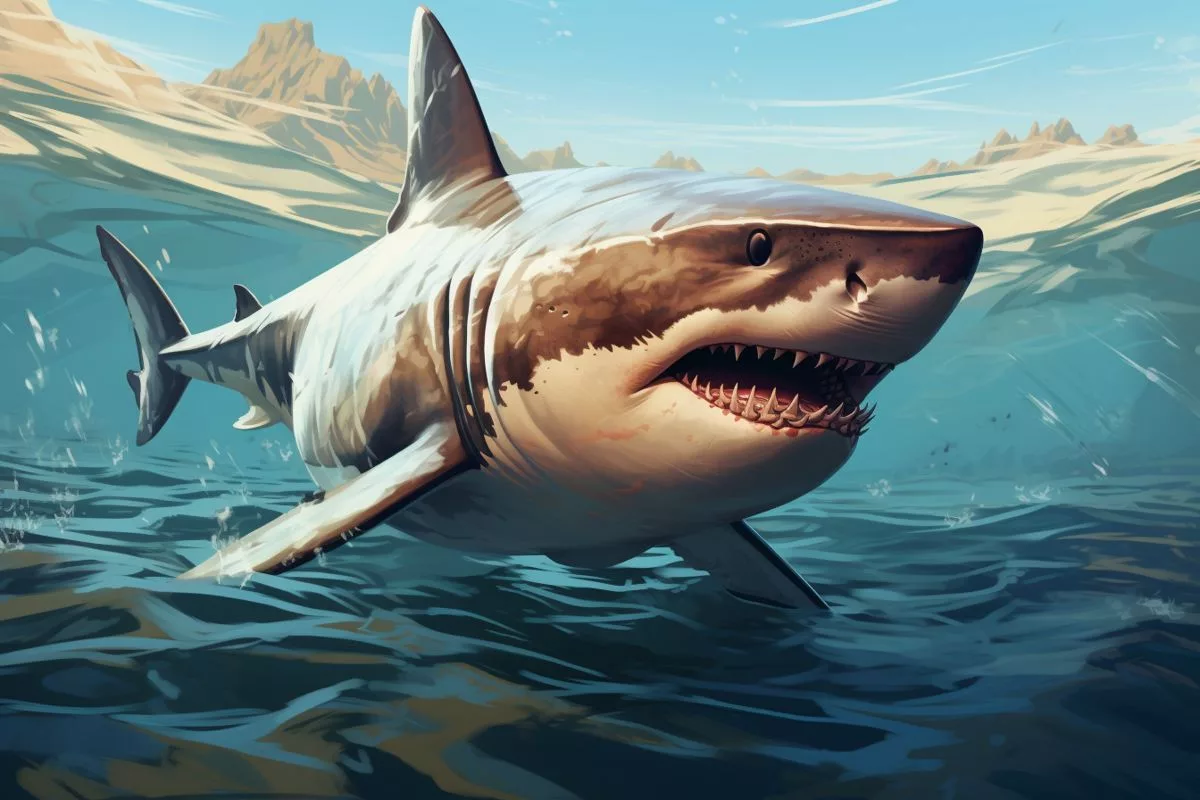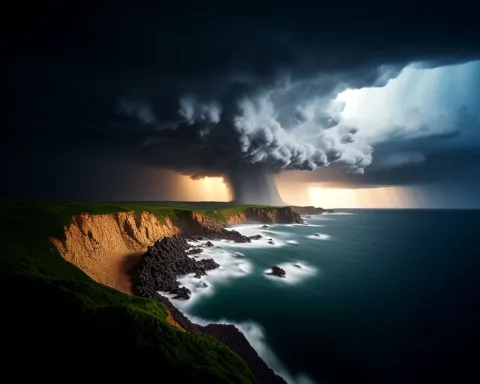Great white shark sightings off the Western Cape coast of South Africa have declined, causing concern about the dwindling population. While recent sightings in False Bay offer hope for a potential resurgence, water users are urged to follow safety guidelines and measures to prioritize their safety. It’s vital to notify emergency services and Shark Spotters in the event of a sighting to enhance monitoring and ensure a safer environment for all ocean users. The oceanic community must uphold a commitment to safety and conservation to ensure great white sharks continue to thrive in our oceans for generations to come.
What is the current status of great white sharks off the Western Cape coast?
The Western Cape coast of South Africa has historically been a hotspot for observing great white sharks. However, recent patterns show a decline in shark sightings, causing concern about dwindling numbers. While recent sightings in False Bay provide hope for a potential resurgence, water users are urged to prioritize safety by following specific guidelines and measures. It is vital to notify emergency services and Shark Spotters in the event of a sighting to enhance monitoring and ensure a safer environment for all ocean users.
A globally renowned hotspot for observing great white sharks in their natural habitat has long been the coastline of South Africa, particularly the Western Cape. This area has been a magnet for a variety of visitors, from marine researchers engrossed in studying marine life to adrenaline junkies and vacationers. Yet, recent patterns show a worrying decline in shark sightings along the coast of the Western Cape, causing concern about the dwindling number of these mighty marine predators.
The Western Cape has historically been the stage for great white sharks to gather, feed, interact, and relax. Locations like Seal Island in False Bay have become critical points of interest where these gatherings occur. These get-togethers have proven to be a source of fascination and study for marine biologists and a unique spectacle for tourists, offering a rare insight into the lives and habits of these grand creatures. However, the alarming decline in shark turnout at these traditional gathering spots indicates a potential decrease in their numbers.
Yet, a beacon of hope in this worrying situation is the recent report from Shark Spotters, a dedicated organization focused on monitoring these marine animals. They have confirmed four sightings of great white sharks in False Bay within a week. These sightings were reported by a range of observers, such as spear fishermen and seasoned water users. Two of the sightings happened at Muizenberg on different days, while the rest were reported from Smitswinkel Bay and near the Roman Rock lighthouse.
Uncertain Future and Increased Alertness in False Bay
While these sporadic sightings have sparked a spark of optimism, it is still uncertain if they herald a larger resurgence of white sharks in False Bay. This ambiguity has led to increased vigilance and wariness among the people who frequent the bay’s waters. Shark Spotters, in an announcement on Facebook, have urged beachgoers and other water users to be cautious while venturing into the ocean. They have also warned that the level of shark activity in the Bay could be higher than in the previous years.
For those interested in participating in water sports or activities, Shark Spotters have provided specific safety guidelines to minimize the risk of encountering sharks. They recommend avoiding swimming, surfing, or surf-skiing near areas where birds, dolphins, or seals are feeding, or where fishing or spearfishing activities are happening. People are also advised against swimming in deep waters or at night, in areas with recent whale strandings, or when bleeding.
Safety Guidelines and Measures for Beachgoers
First-time visitors to the beach are advised to seek information about the local safety measures from local law enforcement, lifeguards, or local residents. Water users are also strongly encouraged to obey beach officials’ instructions, including exiting the water when directed. For those who kayak or surf-ski far out to sea, paddling in groups and maintaining a diamond formation is recommended. Additional precautions include using personal shark shields and being mindful of shark signage on the beaches.
Flags on the beaches serve as coded indicators of different conditions: a white flag accompanied by the sound of a siren indicates a shark sighting; a black flag denotes poor visibility for spotting; a red flag signifies a high shark alert, and a green flag means good spotting conditions are present.
In the event of a shark sighting, it is crucial to notify emergency services immediately, especially if the shark is in proximity to water users, and to inform Shark Spotters. This exchange of information helps ensure a safer environment for all ocean users and enhances the collective knowledge and monitoring of the great white sharks in the area.
Collective Responsibility for Oceanic Safety
Although the recent sightings in False Bay provide a glimmer of hope for a potential increase in the great white shark population, it is incumbent upon the oceanic community to prioritize safety while appreciating the splendor and thrill that these marine environments offer. As we continue to revel in the beauty and majesty of these incredible creatures, we must also uphold a commitment to safety and conservation to ensure they continue to thrive in our oceans for generations to come.
- Why are there concerns about the great white sharks off the Western Cape coast?
Recent patterns show a decline in shark sightings, causing concern about dwindling numbers. The declining population raises fears about the potential loss of these mighty marine predators.
- What is Shark Spotters, and what role do they play in monitoring shark activity?
Shark Spotters is a dedicated organization focused on monitoring marine animals, including great white sharks, and enhancing oceanic safety. They play a critical role in monitoring shark activity and providing safety guidelines and measures to minimize the risk of encountering sharks.
- What safety guidelines and measures should water users follow to minimize the risk of encountering sharks?
Water users should avoid swimming, surfing, or surf-skiing near areas where birds, dolphins, or seals are feeding, or where fishing or spearfishing activities are happening. People should also avoid swimming in deep waters or at night, in areas with recent whale strandings or when bleeding. Additional precautions include using personal shark shields and being mindful of shark signage on the beaches.
- What do the different flags on the beach indicate?
Flags on the beaches serve as coded indicators of different conditions: a white flag accompanied by the sound of a siren indicates a shark sighting; a black flag denotes poor visibility for spotting; a red flag signifies a high shark alert, and a green flag means good spotting conditions are present.
- Why is it essential to notify emergency services and Shark Spotters in the event of a shark sighting?
It is crucial to notify emergency services and Shark Spotters immediately if a shark is sighted in proximity to water users. This exchange of information enhances monitoring and ensures a safer environment for all ocean users.
- What is the collective responsibility for oceanic safety?
The oceanic community must uphold a commitment to safety and conservation to ensure great white sharks continue to thrive in our oceans for generations to come. The continued appreciation of these incredible creatures must be balanced with safety measures to minimize the risk of encountering them.













